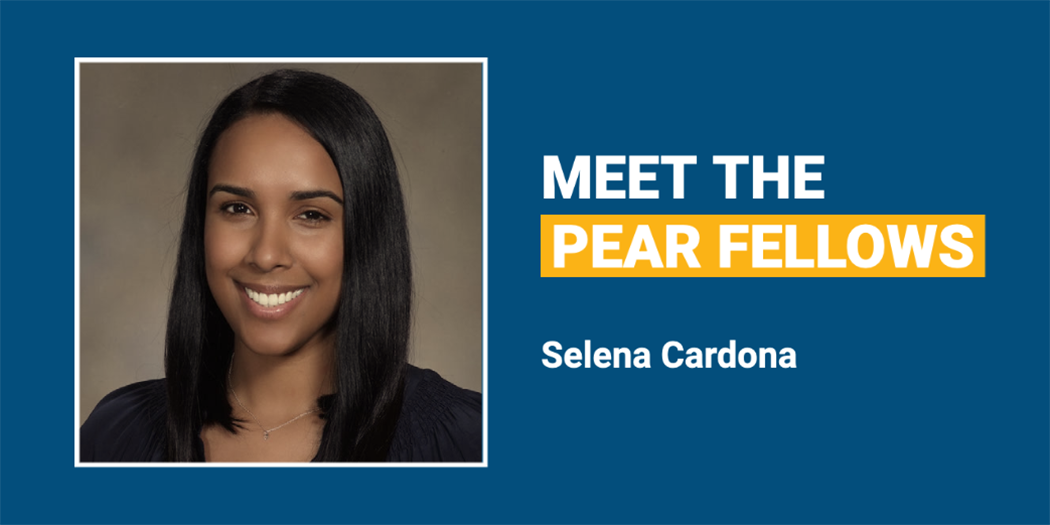We are thrilled to welcome the first cohort of Postsecondary Education Applied Research (PEAR) fellows to Teachers College. Over the next four years, this group of impressive doctoral students will be trained to succeed in their careers in applied postsecondary education research. The PEAR fellows bring a diverse array of experiences, perspectives, and aspirations to Teachers College and CCRC, and we are excited to introduce you to them with this blog series.
To begin, we spoke to Selena Cardona, a PEAR fellow and a senior research assistant at CCRC. Cardona is no stranger to Teachers College, having worked Professor Sarah Cohodes before joining Sen. Chuck Schumer’s New York City office. Read on to learn more about Cardona, including how her experiences teaching abroad sparked an interest in community colleges.
The answers below have been edited for length and clarity.
What were you doing before you became a PEAR fellow?
I worked as a research assistant on Professor Sarah Cohodes’ charter school research team, as a research consultant for the Postsecondary National Policy Institute in Washington D.C., and as a staff assistant in the New York City Office of U.S. Senator Charles E. Schumer.
What would you like to accomplish while you’re a PEAR fellow?
As a PEAR fellow, I am looking forward to immersing myself in the research and policy apprenticeship part of the program. I am equally as enthusiastic about strengthening my research and quantitative methods skills. I am hoping to successfully take what I’ve learned in the classroom and apply it to my apprenticeship experience and beyond.
What does the PEAR fellowship mean for your career?
While I am just beginning my academic career, the PEAR fellowship has already given me so much. For starters, I am a part of an amazing, motivated, and passionate research team. The PEAR fellowship means successfully envisioning myself in spaces that I did not think I could ever be a part of. It also means I can contribute to work that is consequential for my very own community.
What are your research interests?
My research interests include inequities in college access, financial aid policy, workforce development, and the evolving role of the community college.
What would you like to do after your fellowship ends?
After my fellowship ends, I would like to continue the on-the-ground research that I am currently working on by working at an organization like the Brookings Institution, MDRC, or even in our government’s executive branch.
What initially attracted you to the field? What motivates you to stay in it?
I became interested in this field as an undergraduate student. When I first started college, I realized that my peers and I were all on completely different academic levels but were held to the same standards. This is when I first learned about inequities in the high-school-to-college transition.
I became interested in the community college population after teaching abroad in Bogotá, Colombia. Community Colleges there were uniquely positioned to provide a second chance for my students, whose drive and motivation to succeed I admired. I equally admired their perseverance to continue their education while juggling many other responsibilities. As a teacher, I always looked for ways to make their educational experiences more enriching and fulfilling, but we were working with limited resources. The same applies at home in New York City. A lot of my classmates in high school opted to attend community college because it was what worked best for them. Like I observed abroad, the community colleges here worked with limited resources but have a really unique opportunity to directly impact the lives of these highly motivated and very intentional students.
I am motivated to stay in this field because of how important this work is. I always wanted to make a change in my community and work directly with people that I identify with. Knowing how important and life-changing this research is motivates me to stay in this field for the long haul.




